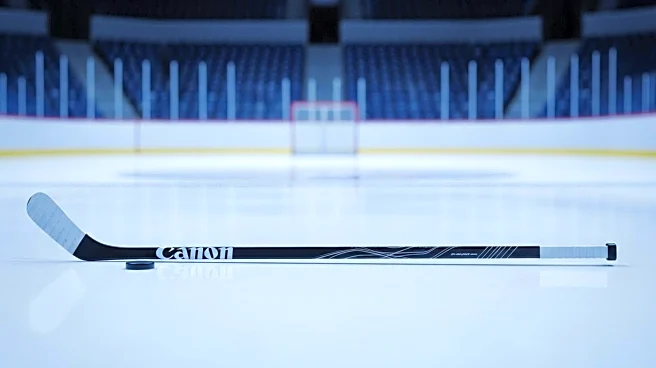What's Happening?
The National Hockey League (NHL) has announced the suspension of New York Islanders forward Jonathan Drouin for one game. This disciplinary action comes after Drouin was involved in an incident during a regular-season match against the Pittsburgh Penguins. At the 59th minute of the game, Drouin struck Pittsburgh forward Connor Dewar on the head with his stick, prompting the league to impose the suspension. In addition to the suspension, Drouin has been fined $20,833, which will be allocated to the Player Emergency Assistance Fund as stipulated by the NHL Collective Bargaining Agreement. The game concluded with a 4-3 victory for the Penguins at their home venue, PPG Paints Arena.
Why It's Important?
This suspension highlights the NHL's commitment to maintaining player safety and enforcing rules against dangerous play. The financial penalty and suspension serve as a deterrent to similar conduct, emphasizing the league's zero-tolerance policy for actions that could lead to injury. For the New York Islanders, Drouin's absence could impact team dynamics and performance in upcoming games, as they adjust their lineup to compensate for his temporary loss. The incident also underscores the ongoing challenges in professional sports to balance competitive intensity with player safety, a concern that resonates across all major leagues.
What's Next?
The New York Islanders will need to strategize for their next game without Drouin, potentially altering their lineup and tactics. The team may face increased scrutiny from fans and analysts regarding their handling of player conduct and safety. Meanwhile, the NHL will continue to monitor on-ice behavior closely, possibly leading to further reviews or adjustments in disciplinary protocols. Other teams may also take note of this incident, reinforcing their own internal policies to prevent similar occurrences.
Beyond the Headlines
This incident may spark broader discussions within the NHL community about the effectiveness of current disciplinary measures and the need for potential reforms. It could lead to increased advocacy for player safety initiatives and more stringent enforcement of rules. Additionally, the financial implications of fines and suspensions may prompt players to reconsider their approach to aggressive play, fostering a culture of respect and safety on the ice.









